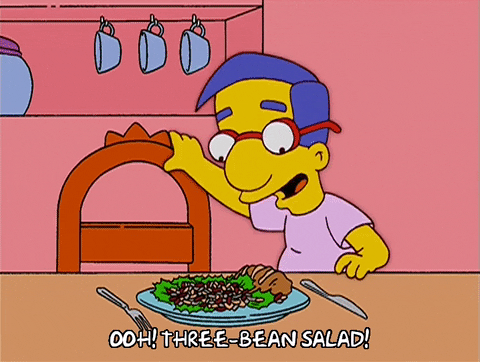Self-discipline: We hear this term thrown around but few people understand what it is and how it can transform your life.
Self-discipline is the ability to exercise self-control and develop good habits even through challenges. It also means sometimes doing things you don't want to in order to achieve your goal.
One area where self-discipline is necessary for change is eating habits.
 Do you opt for fruits and veggies when you need a snack?
Do you opt for fruits and veggies when you need a snack?
Define Your Goal
Determine what exactly you want to change. Be specific and have a plan!
"I want to be healthier."
This goal is not specific enough. How will you know when you've achieved your goal and what will you do to make it happen?
"I want to lose 50 pounds over the next 12 months. I will follow [eating plan] as recommended by my dietician and alternate weights and cardio 4 times per week."
This is a great goal! You have numbers to guide you and a plan in place for achieving it.
Set Realistic Goals
Eating salad for all 3 meals, 7 days a week is not realistic. This is not a sustainable goal, nor will you be happy maintaining it.
 A more realistic goal might be:
A more realistic goal might be:
I will swap out my potato sides for leafy salad three times per week and have dessert once per week.

Break Down Your Goal Into Steps
Have a long-term goal, then set short-term goals to achieve it!
EXAMPLE: Make healthy eating a habit (long-term goal)
Set a realistic timeline to reach the final goal
Create an action plan: work backwards from your final goal date
Create a daily schedule: make sure to schedule in breaks or rewards

Quiz
Which is NOT a realistic long-term goal?
Setbacks Happen!
Had dessert after dinner last night? No problem! Sure, it happened, but don't dwell on it.
Instead, use these lapses to:
Reevaluate your goals to make them more attainable
Renew your motivation: remind yourself why your goal matters to you

Take Action
 Get started on your self-discipline journey to healthier eating today!
Get started on your self-discipline journey to healthier eating today!
Your feedback matters to us.
This Byte helped me better understand the topic.
